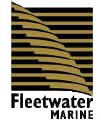| Technology / Frequently
Asked Questions
Does Forward
Osmosis technology
use chemicals to purify dirty water?
Forward Osmosis (FO) does
not use
chemicals to purify water. Our products employ a proprietary
emergency desalination filter system that rejects contaminants and
pathogens to
create pure drink. Purifiers use chemicals to try to kill pathogens and
therefore require long exposure times, high dosages and result in a
poor tasting
drink that may not be safe. SeaPack's emergency desalination membrane
has a
microscopic pore size of 3 to 5 angstroms, 100 times smaller than the
smallest
pathogens.
Will bad tastes possibly
get through
the membrane?
Under most conditions our products produce a life-sustaining drink
that
tastes great. However, it is possible for bad odors to transit
the
patented membrane, depending on the nature of the source water.
This is
because molecules responsible for foul odors (such as sulfur compounds
from
decaying plant or animal matter) are very small and volatile. They can
be close
to the size of the water molecule itself. They are actually perceived
not by the
tongue but by the olfactory system, and the nose can perceive them in
minute
quantities (parts per trillion).
How long can each
product be used and
what happens if that period is exceeded?
Each product is engineered for ten consecutive days from 1st use.
Our
products meet EPA standards using the above guideline. When the
product is
used past the recommended timeframe, there is little to no risk of a
structural
failure. The primary risk is that bacteria introduced to the clean side
of the
product through normal use (backwash or airborne) will eventually cause
bacterial growth within the clean side of the membrane. In the event of
emergency, the health risk from this growth is minimal due to the less
threatening nature of these type of bacteria, and certainly much less
than the
alternative of not using the SeaPack product at all.
Is it possible for harmful bacteria to grow in the sugar-based
drink after
repeated use?
There is very little risk of this happening. Our nutrient driver is
formulated
to lower the pH of the drink to 3.2, which is inhospitable to
pathogenic
bacterial growth. In addition to this, the charge contains
potassium
sorbate and sodium benzoate, commonly used food preservatives to keep
microorganisms from growing.
How long can I store your products before they go bad?
When stored below 90F, we guarantee a 3 year shelf life. Membranes
tolerate high
temperatures well. SeaPack membranes are routinely used in industrial
applications at 150F. Like any food product, storage below 90F is
best. If
stored in less demanding conditions, our products can see a shelf life
of around
five years.
How durable are your
products?
SeaPack products are designed to be rugged enough to withstand military
use.
They have been jumped from aircraft, stuffed in rucks & life
raft and
tossed in the back of vehicles for transport while being used in
training and in
theater. SeaPack products have been pulled from 18 month storage and
deployed to
Iraq without incident.
Like most products, SeaPack
filters will
not withstand intentional, extreme abuse. If for some reason an
internal weld or
seam should fail, the effects upon osmotic production are obvious and
consequently do not endanger the user because the osmotic process will
fail.
Users are advised not to use leaking bags. The membrane itself is
very
rugged. The rejection side of the membrane filter does not come into
contact
with abrasive material that could be present in the source water and
hence is
protected from damage. Any puncture of the membrane would also likely
result in
a leaking bag. In addition, if the membrane is somehow punctured, the
nutrient
sugars responsible for pulling water across the filter will seep into
the dirty
water, preventing water transfer across the membrane and keeping the
bag from
filling with clean drink. This provides an inherently failsafe aspect
of SeaPack
products which provide practical protection to users in the field.
Can the membrane tolerate high temperatures and freezing on
the low end?
The membrane handles extreme temperatures fairly well. During storage
the
membrane systems can tolerate temperatures from 40F to 160F.
Temperatures over
160F will cause failure of the plastics. After initial start and during
use, all
of the membrane products should not be frozen.
Does the product meet
government
regulatory requirements?
EPA standards require chemical purifiers to achieve 6-Log reduction of
bacteria
and 4-Log reduction of viruses. SeaPack products are not chemical
purifiers, but
advanced forward osmosis emergency desalination filters that utilize
SeaPack's
proprietary membrane. SeaPack products have been subject to extensive
independent laboratory and military tests, and have been proven to meet
or
surpass 6-Log bacteria (99.9999%), 4-Log Virus (99.99%) and 3-Log
parasites and
cyst (99.9%) reductions as specified by the EPA for water purifiers.
Can SeaPack products be
cleaned and
re-used?
Yes, but it is not recommended. If it is not properly sanitized
contamination
could result.
What are the weight and
volume savings
of this type of technology?
By allowing you to drink from indigenous water sources, SeaPack
products offer
tremendous benefits to the sailor. Logistically, there are considerable
cube/weight savings of using the SeaPack:
Volume: 1
Pallet of SeaPacks
= 15 Pallets of Bottled Water
Weight: 2.75 lbs. SeaPack System = 40 lbs of Water
(at max volume
of 1.8L)
Are there any negative side effects that result from
continuous consumption
of the SeaPack drink?
SeaPacks produce a drink that is more concentrated than any
other
sports drink intended to replace calories and electrolytes lost through
exercise. It is highly recommended that the SeaPack be used
only for
emergency desalination use and that small sips, separated by a length
of time be
used to consume the drink.
Perfect for use in your
life raft, ditch
bag or kayak.
|



